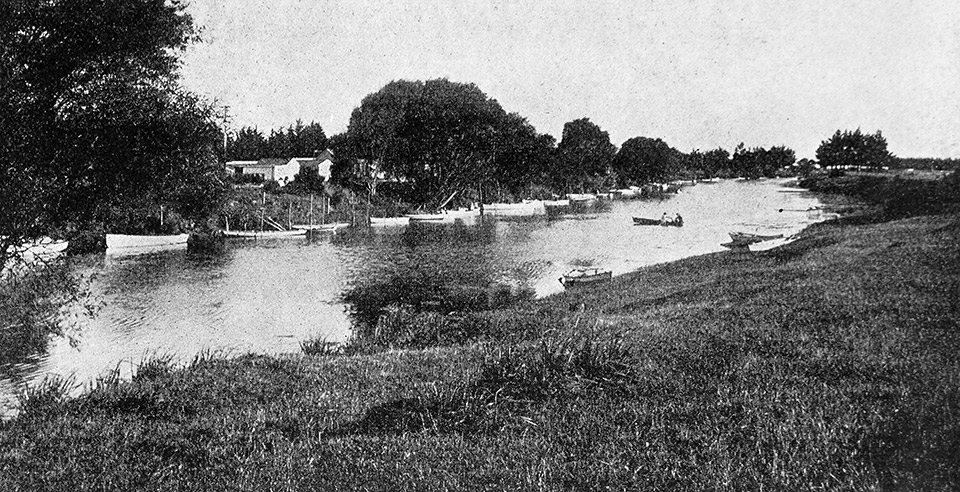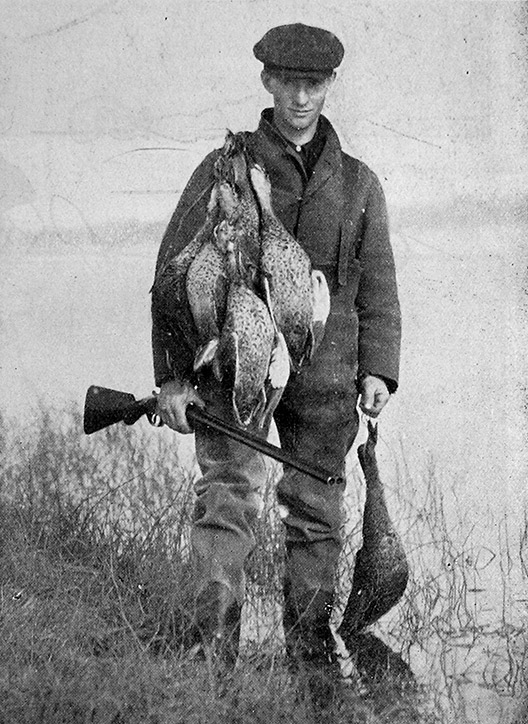Selwyn Huts and the lake-edge settlements
In March 1985, five acres were set aside on the banks of the Waikirirkiri/Selwyn River around 3 kilometres from the lake as a fishing settlement, with another 15 acres as a public reserve. The area, known as Upper Selwyn Huts, became very popular in the first decades of the 20th century, with many family baches and people flocking to the area at weekends and on holidays.
There are also several small lake-edge settlements: Fishermans Point, Greenpark Huts, Kaituna Huts, Lower Selwyn Huts and a small settlement at Timberyard Road. Irwell Huts, at the mouth of the Waiwhio/Irwell River no longer exists, but was home to 20-30 fishermen’s huts or tents in the late 1880s.

The Weekly Press, 9 October 1924: The ‘Selwyn Huts’, a popular weekend resort of Christchurch anglers near the mouth of the Selwyn River, Canterbury.
Source: Christchurch City Libraries. CCL Selwyn P7310319
A popular location for duck shooting
In the second half of the 19th century, duck shooting at Te Waihora/Lake Ellesmere was popular but unregulated. Letter writers to the local papers expressed concern about the ‘wanton slaughter’ by a small number of shooters that deprived others of sport. From the early 1900s, the Acclimatisation Society regulated duck shooting, with restrictions on ammunition type, bag limits and protection for some native species.
Today Te Waihora is one of New Zealand's most popular recreational duck-shooting areas, with many maimais (duck shooters’ hides) visible around the lake margins.
There is a Maimai Agreement between the North Canterbury Fish and Game Council, Te Papa Atawhai/Department of Conservation and Te Rūnanga o Ngāi Tahu, which ensures recreational hunters can continue to use the area while recognising the rights of Te Rūnanga and the requirements of conservation legislation. The Agreement means that a portion of the gamebird hunting licence fee from maimai users goes into a joint fund for enhancement projects. A key decision arising from the Agreement was the banning of lead shot at Te Waihora.
The duck shooting season starts on the first Saturday in May.

Canterbury Times, 5 June 1912: A duck shooter at Lake Ellesmere and his bag.
Source: Christchurch City Libraries. CCL-Selwyn-P3261386
100 years of regattas, races and water skiing
Small-scale competitions with rowing, sailing and swimming at Taumutu, which began in the mid-1880s, became highly popular annual events, with the first motorboat races held in 1915. Although interrupted by the war, speedboat races and water skiing competitions continued until the 1980s.
The 1964 national water-skiing championships were held at Te Waihora and featured slalom, jumps and a 'display day' where formation skiing tricks were demonstrated.
